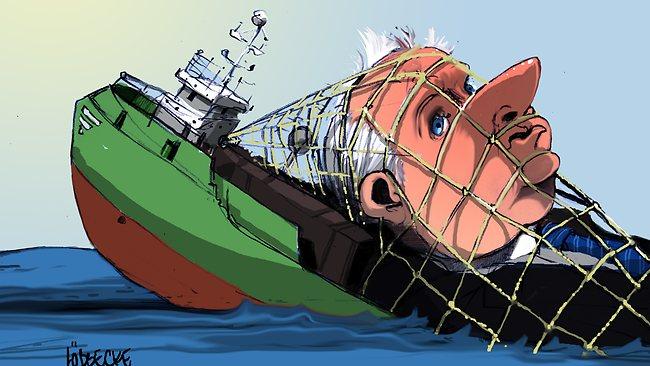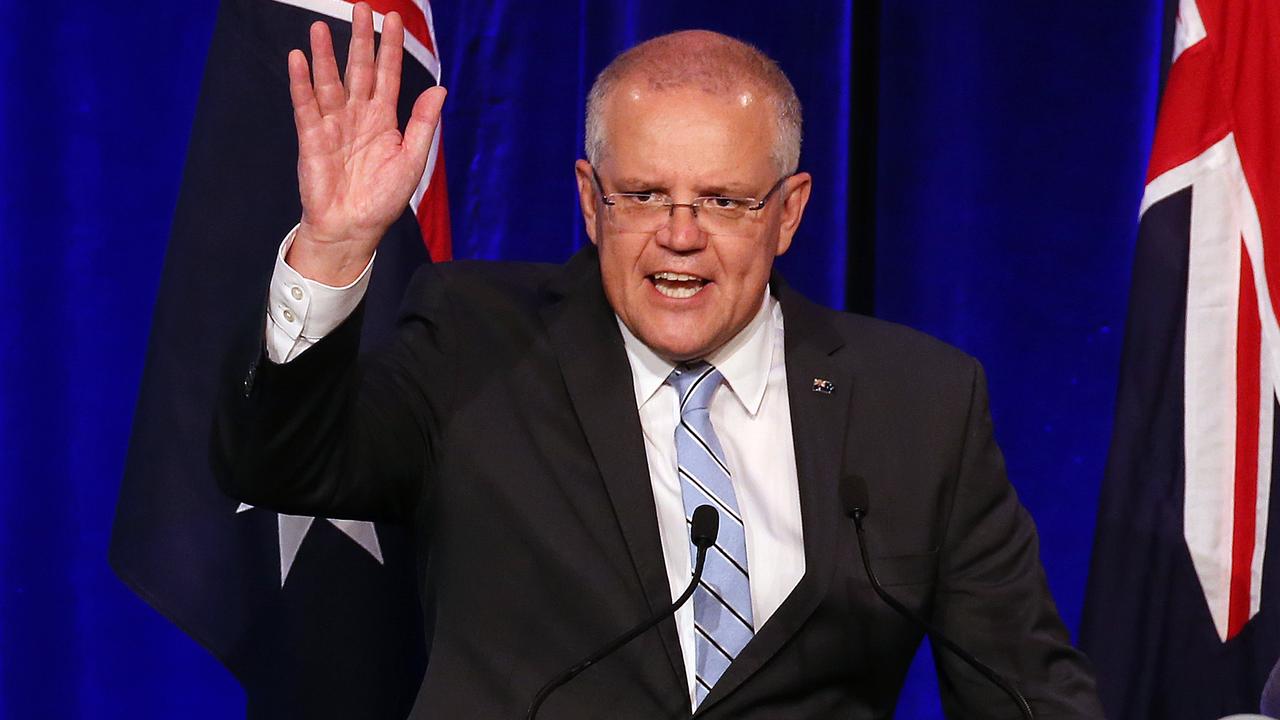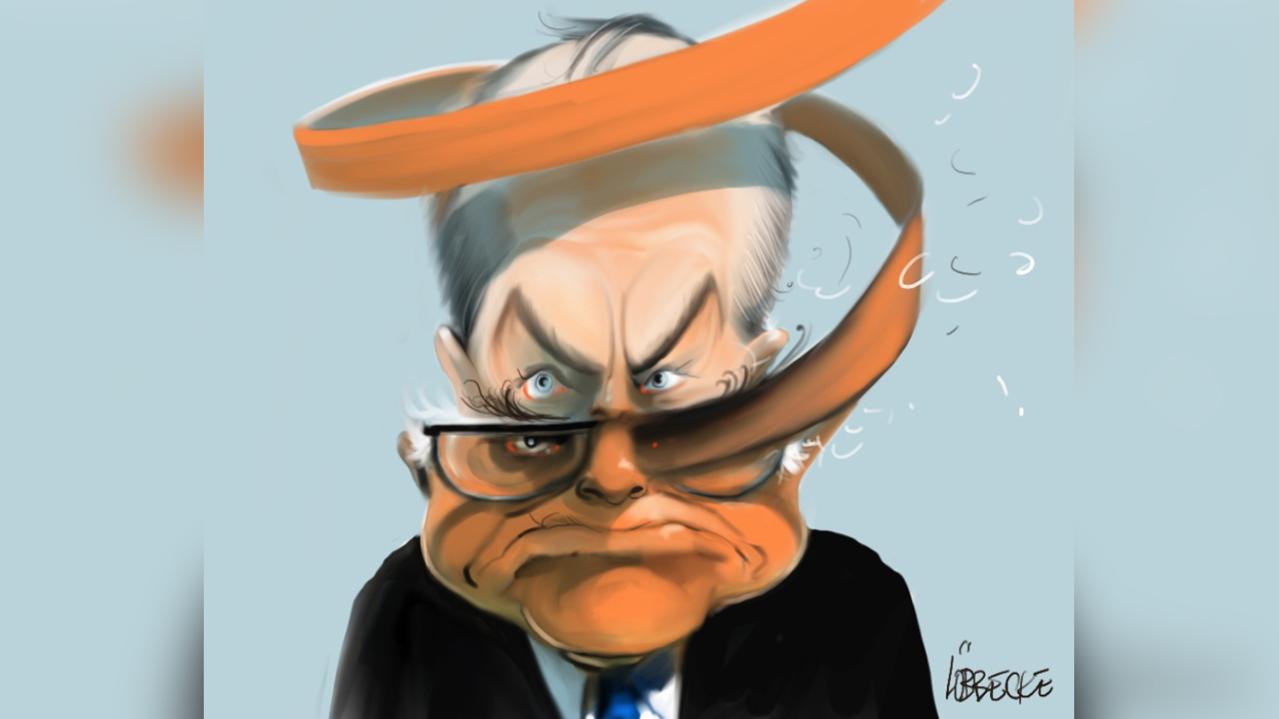Tony Burke shows himself an appalling policymaker

THE sudden, last-minute attempts to legislate to ban the so-called super-trawler Abel Tasman from fishing in Australian waters is the perfect example of how not to run a government.
Unfortunately, it is also emblematic of how the Labor government has approached a host of policy issues during its time in office. The grab bag of handouts when the global financial crisis hit was poorly crafted, leading to waste and inefficiencies, and ultimately deaths, courtesy of the pink batts debacle.
The original emissions trading scheme was dumped because of political fears that those opposed to reasonable climate change action would cause harm to the government. Instead, Labor has been forced to break a no-carbon-tax pledge for no reason other than to pacify the Greens in a post-election deal that ultimately delivers an ETS anyway.
The first incarnation of the mining tax was hastily contrived so that Wayne Swan could get his hands on super profits in time to pledge a surplus to shield the government from economic attacks.
But it was dumped when the going got tough, in favour of a second mining tax, the design of which was put together behind closed doors with only the three big miners in the room. It rebates state royalty increases as a sort of blank cheque to premiers, one that they have been cashing in ever since. And as the mid-year economic and fiscal outlook test of the tax's true revenue-earning potential looms, most analysts aren't sure it will generate any income, much less of the order Treasury has so far banked on.
Then there was the suspension of the entire live-cattle trade with Indonesia on the basis of isolated mistreatment of animals shown in one television program.
Not that poorly thought-through political decision-making is confined to the federal government. The plans (since amended) by the NSW government to drastically cut spending to independent schools when their budgets were already set achieves a gold standard in political stupidity: how to unite Liberal Party donors with teachers unions in a policy field the federal government is already trying to wedge the conservative side of politics on.
Bob Hawke, Paul Keating and John Howard all performed policy backflips and engaged in politically reactionary policy settings. But nothing like we are bearing witness to today. The standard of the political class has slipped, and the populist rhetoric that passes for the opposition's alternative agenda for government gives no comfort that circumstances are going to get much better after the next election.
What's most disappointing about Labor's latest policy misstep on the super-trawler is the minister making the poor decision.
Environment Minister Tony Burke is supposed to be one of the faces of the future. Widely touted as smart, clever and a potential leader, he has diminished himself greatly during the past week.
Labor had seven years to think about whether it would block the Abel Tasman from fishing in Australia. That's how long planning has been under way for its arrival. Time enough for Labor to consider its position on this matter before it even formed government in 2007.
The trawler's catch size is no larger than the quota already set for fishers domestically (a mere 7 per cent for the assigned catch). It has been able to fish to that quota only because it bought the rights to do so from Seafish Tasmania, buying others out from doing the same.
If the super-trawler is ultimately banned from fishing in Australia, the quota will still be met by a flotilla of smaller boats that will step back into the market.
While the Abel Tasman does cut an imposing figure at more than 140m in length, perhaps the most significant rebuttal of the fear campaign environmentalists have mounted against it is that its nets aren't any larger than those used by domestic operators. The boat itself is so much bigger to accommodate stockpiles of fish in fridge and freezing facilities, so that it can last longer at sea.
This creates an economic efficiency that improves the profitability of the operation, and in all likelihood puts downward pressure on the seafood prices of the mackerel and redbait stocks the Abel Tasman collects. (It isn't going after even remotely endangered fish species.)
And the refrigeration capacity on the vessel allows it to spend more time engaged in what's termed "mid-sea" fishing: time spent in deeper waters farther away from shore.
The independent (non-political) regulator, the Australian Fisheries Management Authority, believes mid-sea fishing poses a less significant risk to marine life than does fishing closer to shore because there are fewer animals at risk in such waters.
The deliberately emotive campaign by environmentalists has focused on the size of the vessel (rather than the comparative size of its nets) and the risks it therefore poses to marine life such as dolphins and seals.
Given that the size of the vessel is irrelevant, and the deeper-sea fishing of the vessel is, in fact, a plus compared with other fishing operations in this country, it's a truly hollow argument.
It's made even more hollow because of the state-of-the-art devices and procedures with which the Abel Tasman has been forced to comply to fish in our waters: underwater cameras, specially designed nets that free larger animals caught, constant monitoring and rules that immediately cease operations if so much as one dolphin is killed.
Does anyone seriously think such oversight is possible in a decentralised system of smaller fishing boats? Because that's what will replace the Abel Tasman when its catch quota is fulfilled by smaller operators if the ban remains.
I do not begrudge environmental campaigners deliberately misrepresenting their case to make a political point, any more than I begrudge newspaper executives collecting the dollars from the ad campaign to make a buck. It is the job of political leaders to stand up to such campaigns and articulate why they should not be taken seriously.
Some readers would have seen a full page anti-trawler advertisement showing dead dolphins being cast out of the net back into sea. It was a powerful image that challenged the safety standards alleged to be in place. But what the advertisment did not say was that the images are from before the super-trawler was required to improve its nets to accommodate safe release of larger marine animals such as dolphins, and it was before underwater monitoring equipment was installed so operations could be suspended if a dolphin got caught in the net.
Most importantly, the photo was taken when the trawler was operating off the coast of Africa, where governments do not impose the standards our government did before letting the Abel Tasman set sail here.
Putting aside the host of reasons the government's attempt to ban the super-trawler was poor policy, and the list of examples wherein similarly poor decision-making has dominated modern politics, there is one very simple reason this week's legislative effort by Burke was appalling. He should not have waited for the trawler's arrival to make the decision. It's like waiting until your guests ring the doorbell before bothering to tell them you decided to cancel the dinner party.
Peter van Onselen is a Winthrop professor at the University of Western Australia


